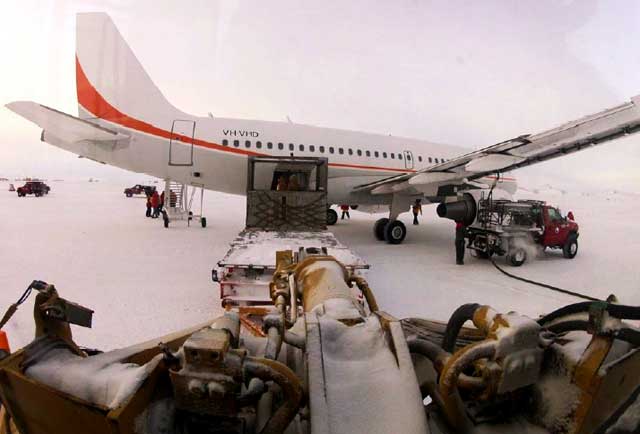Shutdown Ends, But US Antarctic Research Still on Thin Ice

This story was updated at 6:00 p.m. ET.
With government cash flowing again, the U.S. Antarctic research program is scrambling to reverse the science shutdown forced into place last week.
On Oct. 8, the National Science Foundation (NSF) ordered the three U.S. Antarctic bases drawn down to winter caretaker status, with minimal staff. The closure reverberated across the planet, hurting thousands of scientists and staffers heading to the frozen continent for the summer research season.
Now, returning NSF employees face a logistical nightmare — rewinding the shutdown and trying to save the Antarctic research season. Because of the mess, it will be several days before scientists learn the status of their stalled projects. But the tight window for Antarctic travel means some research projects can't be saved.
"It must be understood that due to seasonally dependent windows and logistic limitations, certain research and operations activities may be deferred," the U.S. Antarctic Program said today (Oct. 17) in a statement.
One such experiment is SPIDER, a high-altitude balloon that will search for gravity waves in cosmic microwave background radiation.
"There are three long-duration balloon flights, including our own, that will likely be scrubbed this year as a result of the dysfunction in Congress," William Jones, a cosmologist at Princeton University, told LiveScience. "We must set up a laboratory and build, integrate and test a spacecraft before the mid-December launch window; the time that has been lost is precious. [17 Weirdest Effects of the Government Shutdown]
Get the world’s most fascinating discoveries delivered straight to your inbox.
"I fully appreciate the untenable situation that Congress has presented to the federal agencies, and I in no way find fault with the decisions that NSF has made to date with regard to the Antarctic operations. As far as I can tell, they all are making the best of an impossible situation," Jones added.
Saving science
In anticipation of the shortened schedules, many Antarctic researchers spent the shutdown trimming their timetables. Ross Powell, chief scientist for the WISSARD project, said he and his colleagues planned several alternatives for the massive drilling effort, which will delve under the West Antarctic Ice Sheet.
"Once we have [a] time-frame and understand what can get down to Antarctica (numbers of people and amounts of science cargo) and what logistics will be possible while we are down there, then we can select which scenario we can follow for our expedition this year," Powell, a geologist at Northern Illinois University, told LiveScience by email.
Operation IceBridge, which tracks yearly changes in the polar ice sheets, will likely go ahead, but with fewer flights. This was the first year the research mission planned to fly a P-3B plane out of Antarctica's McMurdo Station instead of taking off from Punta Arenas, Chile.
"At this point everyone is trying to assess the impact on the deployments and determine the best way forward," said IceBridge project scientist Michael Studinger. "We have more questions than answers but we should know more sometime next week, hopefully. Both NASA and NSF are committed to enable a shortened McMurdo deployment if possible."
Scientists who arrived by ship at Palmer Station last week woke to a welcome reprieve. They were scheduled to leave the island research base on the Antarctic Peninsula today (Oct. 17), along with most of the base's support staff.
"The sense of relief on station is palpable — members of the various science teams are excited to set up their laboratories and begin the meticulous business of sampling and data collection, while newly-arrived support personnel are eager to begin the long list of projects that lies ahead of them this summer," graduate student Jamie Collins of the Woods Hole Oceanographic Institution in Woods Hole, Mass., wrote on his blog.
According to emails sent to scientists, Lockheed Martin, NSF's Antarctic support contractor, has been directed to start planning for full operations again. Lockheed's California cargo center, which ships scientific equipment, is also back online. Lockheed and NSF are now starting the lengthy process of recalling support staff who were sent home or never arrived in Antarctica. Among them are contractors who were stranded in Christchurch, New Zealand or stopped from boarding their flights in Los Angeles.
Email Becky Oskin or follow her @beckyoskin. Follow us @livescience, Facebook & Google+. Original article on LiveScience.



